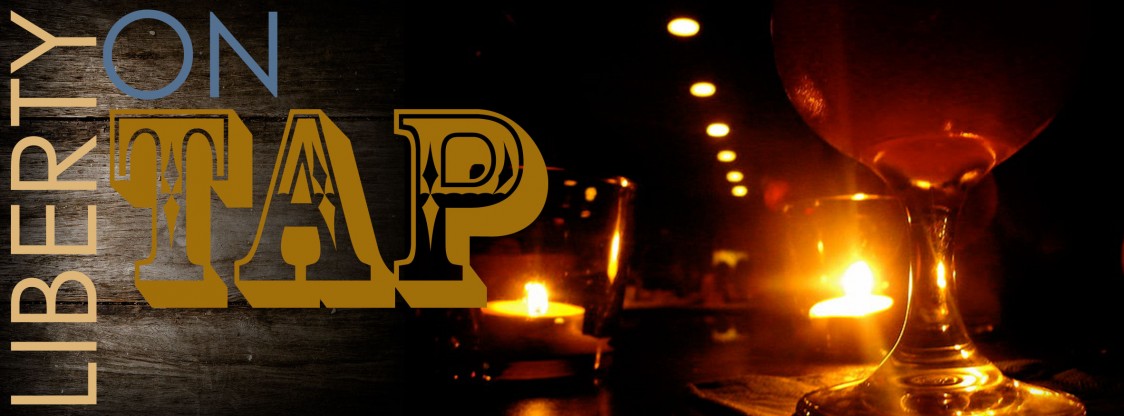With the upcoming Liberty On Tap gathering focusing upon local issues of concern to Tulsans slated for this Thursday, March 5th, 6 PM, at HopBunz, 33rd and Peoria, I thought readers would enjoy this brief historical piece on your forebears from the 1988 archive vault of The Tulsa Tribune’s Point of View op-ed column.
Tulsa’s Vigilant ‘Dissidents’ by Charles A. Burris
They are not part of Tulsa’s reigning Establishment. They hold no public office. They do not belong to Southern Hills Country Club, the Tulsa Metropolitan Chamber of Commerce, or All Souls Unitarian Church. They do not serve on the boards of prominent banks, law firms, or corporations.
Yet in every news story or editorial account of a city commission meeting or public hearing, an experienced reader of the daily paper encounters a re-occurring reference to certain persons who attend these important gatherings.
Invariably, they are categorized as “long-time City Hall critics,” “rebels,” “dissidents,” etc. (much as the Tory press described Sam Adams, Patrick Henry and Tom Paine in the 1770s.)
Just who are these people and why are they labeled with these unflattering descriptions? And why has our city become a better place for the fact that they have lived here?
“The most dangerous man, to any government,” wrote this century’s greatest journalist H. L. Mencken, “is the man who is able to think things out for himself, without regard to the prevailing superstitions and taboos. Almost inevitably he comes to the conclusion that the government he lives under is dishonest, insane and intolerable, and so, if he is romantic, he tries to change it. And even if he is not romantic personally he is very apt to spread discontent among those who are.”
From the time of Abraham and Socrates in ancient history to the present, every generation and community has had such heroic “dissidents” to challenge the status quo. Tulsa is no exception.
And it because they do not naively subscribe to the Mary Poppins Theory of Government — “that a spoonful of sugar helps the medicine go down” — in this instance, the “medicine” being the reliance upon more taxes and the bureaucratic quick-fix as the panacea to Tulsa’s problems (which is the orthodox answer propounded by the powers-that-be in endless studies, panels, and reports), the following citizens are caricatured by the press in the terms described above:
TOM QUINN. Former mayoral candidate Tom Quinn’s now historic lawsuit exposing City Hall corruption, fraud, and deception in last year’s sales tax and bond election has undoubtedly made him one of the most talked about personalities on the Tulsa scene. He is one of the few “citizen watchdogs” of the abuses of government guided by an optimism tempered with a sense of humor. Perhaps that is what has made him so appealing to average Tulsans who pay their taxes, rear their children, and who want to be left alone by the government; and equally what has made him so feared by the business-as-usual bunch running our community.
LEE FINCANNON. To those who know him, Lee Fincannon is a quiet, soft-spoken, and gentle man. A distinguished war veteran who was awarded the Silver Star and helped liberate concentration camp inmates from Nazi tyranny, he has for over 30 years waged another battle: the protection of the rights and property of homeowners in the Mingo Creek area. Together with his comrade-in-arms, Pryor Price (scion of one of Tulsa’s first families), he has fought corruption and racketeering in Tulsa city and county governmental affairs.
VINCE SPOSATO. At a mid 1960s city commission meeting, Vince Sposato painfully watched as an elderly black lady’s desperate pleas to spare her home from an overzealous Urban Renewal bull-dozer fell on deaf ears. Outraged by the commissioners’ callous behavior, he helped this shattered woman compose, in her own words and on her tear-stained stationery, a letter to the president of the United States describing her plight. The result: No government entity was to touch her home during her lifetime. This memory is ever-present with the compassionate Sposato.
DAVID BREED. A walking compendium of the little-known stories which make the richness of Tulsa’s history and character, David Breed has stood, first with his association with the Oklahoma Eagle newspaper and presently with Western Neighbors, as the embodiment of the values of community, individual dignity, and self-help.
MRS. V. J. McCLENDON. By her presence in public affairs, and through the dedicated maintenance of her American Opinion bookstore (a Tulsa landmark just north of TJC’s downtown campus), Vangie McClendon has contributed much to the educational enrichment of our city.
There are, of course, other names who come to mind: the late Hermann Kopp, Frank Carey, Betsy Horowitz, and Robert Murphy, who have stood up publicly, against the prevailing tide of opinion, for what they believed in their hearts to be right.
All of these individuals knew that “the price of liberty is eternal vigilance,” and were willing to pay that price.
We are all in their debt.
# # # # # # # # # # # #
Charles Burris is a Tulsa-based writer. He is presently leading the effort for an addition of a Bill of Rights to Tulsa’s proposed new City Charter.




















Many thanks to Charles Burris for this timely and, obviously, timeless Tulsa World op-ed piece from 1988. I hope to see him at our next Liberty on Tap gathering this Thursday. Nancy Humphreys
LikeLike
Rest assured, the moment our enemies obtain a nuclear weapon, they will drive it straight into Times Square and detonate without the slightest henHattios.iey, that’s not fair. Only we detonate nuclear weapons!
LikeLike